Osher Lifelong Learning Institute

Osher Courses
Courses & Events
Osher Membership Fee
July 1, 2023 to July 1, 2024
A Forensic Study of Lincoln's Assassination
We'll study the surrender of Lee at Appomattox, the planning of the assassination, the care rendered to Lincoln, and his final hours at the Peterson House. We'll discuss autopsy findings, ballistics studies, the extent of brain damage, and his possible survival as well as the escape and death of John Wilkes Booth.
Instructor Bio: Daniel Cudnik is a retired board-certified Plastic Surgeon. He formerly served as President of the Medical Staff and sat on various boards of trustees He has a passion for history and shares his knowledge with others, actively presenting for civic groups on historical topics mixing medicine with history.
Friday, June 14, 2024, Osher Institute, St. Andrews Office Facility In Person
A Personal Journey Down the Arkansas River and It Impact on America's Heartland (1803 - the present day)
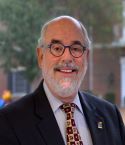
Instructor Bio: Hannes Zacharias is the Robert A. Kipp Professor of Practice for the KU School of Public Affairs and Administration following a 35-year career in local city and county government administration. He has served as City Manager of Boonville, Mo., Hays, Kan. and County Manager for Johnson County, Kan.
June 12-26, 2024, Jayhawk Area Agency on Aging In Person
Advances in Medicine
Join us as we delve into medicine from the past to learn how far we've come. We'll study modern medicine to learn how we got to this point in treatment of certain conditions such as: congestive heart failure; atherosclerotic coronary, carotid, and peripheral arteries, and valvular heart disease. We'll also explore the advances in congenital heart disease.
Instructor Bio: Alan Forker received bachelor's & doctor of medicine degrees from the University of Kansas. After 12 years in private practice of Cardiology, he spent 32 years in academic medicine, and the last 26 at UMKC. He published 82 articles in medical literature and co-edited 2 books. He was elected Master of the American College of Physicians.
June 24, 2024 to July 8, 2024, KU Edwards Campus, 163 Regnier Hall, In Person and Online
Adventures in Architecture: Frank Lloyd Wright
Instructor Bio: Vincent Clark holds a doctorate in modern European history. His graduate work included a Fulbright Graduate Fellowship at Germany's University of Heidelberg. He was history professor and chair of the history department at Johnson County Community College and has published articles and books in his field.
June 26, 2024 to July 10, 2024, Roeland Park Community Center In Person
Alzheimer's and Brain Health: From Treatment to Prevention - Speakers Series
Come learn about the latest developments in Alzheimer's, including advances in how the disease is diagnosed. We'll explore new medications to treat the disease and study how lifestyle modifications may help with prevention. Hear how groundbreaking medical advances may enable early detection prior to the emergence of memory symptoms, paving the way for the application of novel preventative therapies.
Instructor Bio: Jeffrey M. Burns, M.D., M.S. is the co-director of the University of Kansas Alzheimer's Disease Research Center. Dr. Burns completed medical school at the University of Kansas Medical Center, neurology residency at the University of Virginia, and a post-doctoral fellowship in Alzheimer's at Washington University in St. Louis. In 2004 he returned to his hometown of Kansas City to start the Alzheimer's program to stimulate research locally while pursuing research investigating how lifestyle factors influence brain aging and Alzheimer's.
Thursday, June 13, 2024, KU Edwards Campus, 163 Regnier Hall, In Person and Online
America the Beautiful: 50 States, 50 Tastes
Come explore the delicious, unique flavors of New England, the Heartland, the Southwest and Pacific Coast. There are 50 signature dishes and stories to be told and tasted. Bring your road map, turn up the radio and bring your appetite for a 'sea to shining sea, purple mountain majesty, amber waves of grain' food adventure.
Instructor Bio: Chef Larry Canepa is a certified culinary educator with over 40 years of food and beverage experience and 20 years of teaching cooking, food and culture, and STEAM-focused classes. He has taught culinary classes at Le Cordon Bleu, the International Culinary School at the Art Institute, corporate wellness events, libraries, community centers and other venues.
June 3-17, 2024, Zoom Facilitated Sessions
An Introduction to Marine Biology for Non-Scientists
Join us to study the physical and chemical features of oceans (e.g., tides and salinities) and learn about the estuarine animal and plant communities. We'll examine ecology of rocky intertidal habitats (e.g., U.S. West Coast) and discuss sandy shore communities. Finally, we'll delve into offshore habitats, to include coral reefs and shallow and deep-water organisms.
Instructor Bio: James (Jim) Thorp is an aquatic ecologist who retired at the end of 2023 from the University of Kansas and is now an emeritus professor in the Department of Ecology and Evolutionary Biology and is also associated with the Kansas Biological Survey and Center for Ecological Research. He has published over 150 journal articles and 11 books on aquatic subjects.
June 24, 2024 to July 8, 2024, Osher Institute, St. Andrews Office Facility In Person
Antarctica
According to historians Antarctica was officially discovered in 1829 by Captain von Bellingshausen, a German sailing under the flag of the Russian empire. Among the seven continents it is fifth in size but is the highest, driest, and coldest of all continents. It is of interest for economic, scientific research and exploration. We will discuss what life is like there, its beauty, and dangers as well as scientific allure.
Instructor Bios:
Gisela A.M. Dreschhoff has spent a total of 20 field seasons in both polar regions, Antarctic, and Greenland, studying the effects of solar particles on the polar atmosphere which leaves a signature in the ice to be studied in ice cores. Some of her honors include a mountain peak in Antarctic named the Dreschhoff Peak. She has been named Fellow of The Explorers Club and currently she has an adjunct appointment in geology and physics/astronomy at KU.
Ernest Angino is a retired professor of geology and civil engineering at the University of Kansas. He has spent more than 45 years studying energy resources and Antarctic geochemistry. Among his honors is the Angino Buttress, a mountain range in Antarctic. He has also worked in radiation science that led to the development of the Lithium Fluoride Dosimeter.
Randy Van Schmus is a retired KU geology professor (1967-2007). His specialty is measuring ages of old rocks, and he has done research in Africa, Antarctica, Brazil, Canada as well as the U.S.A. He also did research on meteorites while in the USAF.
Friday, August 2, 2024
Bond. James Bond: 70 Years of Weapons, Women and (foiled) World Domination
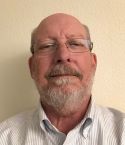
From the first novel "Casino Royale" in 1953 to the 25th "authorized" film "No Time to Die," many of us keep coming back to the exotic locales, the Bond women, the latest devices from Q Branch, the supervillains with plans to conquer the world and their formidable enforcers. We'll look at the changes to Bond over the years, his cultural impact, and his continuing appeal.
Instructor Bio: Karl Menninger is retired from a legal career in federal and state government, mostly dealing with issues concerning persons with disabilities. He teaches courses on disabilities and the law and insanity defense at the University of Missouri - Kansas City School of Law.
July 17-19, 2024
Bones and Stones
From Monument Rocks to Little Jerusalem, Historic Scott Lake, the Arikaree Breaks, Castle Rock, Mount Sunflower, the Cimarron Grasslands--the geography of western Kansas includes landscapes, skyscapes, and amazing rock formations. Expert interpreters from paleontology and geology will join in the conversation as we explore the why and how this unique landscape was formed.
Instructor Bio: Deb Goodrich, the host of the TV show "Around Kansas," and the Garvey (Texas) Foundation Historian in Residence at the Fort Wallace Museum, chairs the Santa Fe Trail 200. She has appeared in many documentaries including "The Road to Valhalla," "Aftershock," and "American Experience" on Jesse James, and the series, "Gunslingers" on AHC. She wrote and produced the docudrama, "Thof's Dragon."
June 26, 2024 to July 10, 2024, Zoom Facilitated Sessions
Brown v. Board of Education
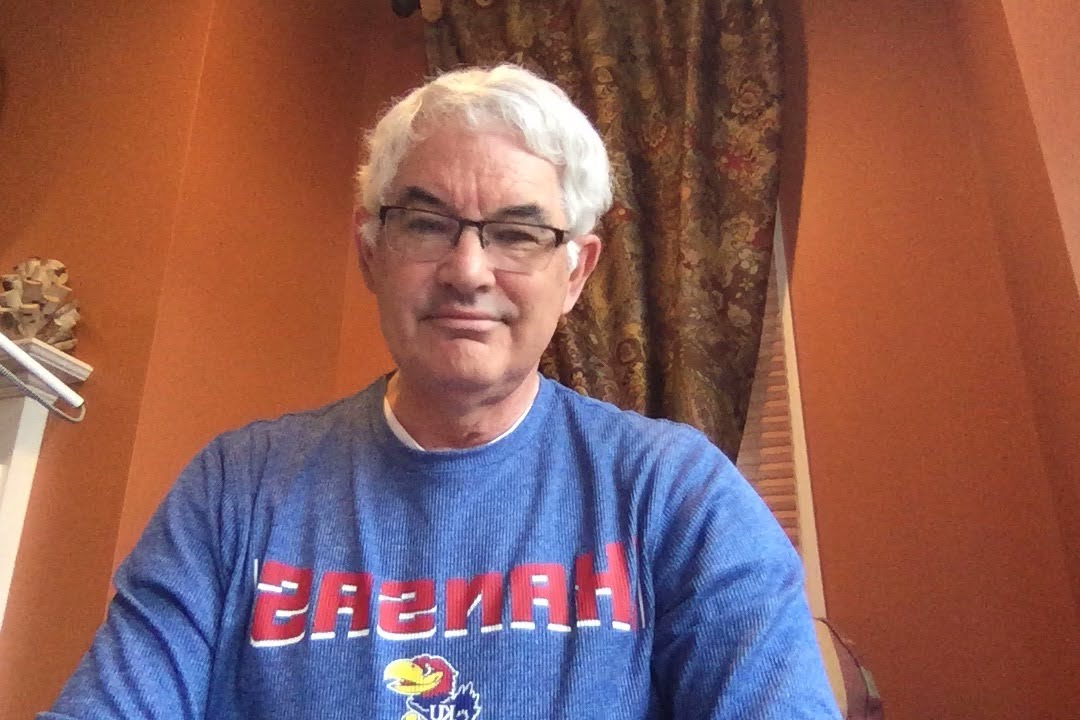
Instructor Bio: Russ Hutchins teaches U.S. history, Western civilization, economics, business, philosophy, and business management at Friends University. He is a retired public-school administrator and educator.
April 29, 2024 to May 13, 2024, Zoom Facilitated Sessions
Climate Change: What Will Happen?
Climate change is real and impacts from climate change are emerging. Despite the many efforts under way, we are not winning the battle to save the planet. Our way of life is threatened and the choices we make now are important. The class will highlight current and potential future impacts to thwart climate change, discuss alternative actions we might take, and what might happen.
Instructor Bio: Charles "Chick" Keller is a retired senior executive and retired professor. He worked 15 years each at Sprint, and Black and Veatch in strategic planning and strategic marketing rising to VP level both times. In 2000, he began a career as a professor in KU's engineering management program where he taught finance and strategic planning.
Friday, June 14, 2024, KU Edwards Campus, 163 Regnier Hall, In Person and Online
Donation to the Osher Institute
July 1, 2023 to July 1, 2024
Energy
Energy has been an essential need of mankind from ancient times to the present, from the use of peat to nuclear power. However, we must deal with the fact that sources are where nature put them. Each type of energy has its positives and negatives and its use as economic and political impact worldwide. Many of these facts are inseparable. We will discuss each type from past or present in their ramifications.
Instructor Bio: Ernest Angino is a retired professor of geology and civil engineering at the University of Kansas. He has spent more than 45 years studying energy resources and Antarctic geochemistry. Among his honors is the Angino Buttress, a mountain range in Antarctic. He has also worked in radiation science that led to the development of the Lithium Fluoride Dosimeter.
Thursday, July 11, 2024
Exceptional Women Artists from Renaissance to Modern Times
Although women always have been artists, few are described as great. Historically excluded from art history records, women were unable to pursue art education. Successful female artists were likely to have had husbands or fathers supporting them. This course explores seven exceptional female artists and their work from the Baroque to the present time.
Instructor Bio: Susan Pingleton, M.D., is professor emerita at the University of Kansas Medical Center, where she was a clinician-educator. Her interests include art and art history. She is involved in local art organizations, including KC/Arts, the Nelson-Atkins Museum of Art, and a member of the art committee at KU Med.
Tuesday, June 18, 2024, KU Edwards Campus, 163 Regnier Hall, In Person and Online
Exploring Reality Beyond Physics - Great Western Philosophers
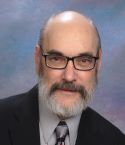
Instructor Bio: James Gaither, Th.D., holds a master's degree in philosophy from the University of Kansas and ThD from Holos University Graduate Seminary. For over 25 years he has taught courses in history of Western thought, world religions, metaphysics and ethics and is currently a "semi-retired."
April 11-25, 2024, Eudora Community Museum In Person
Exploring the Works of Governors Sam Crawford and Arthur Capper
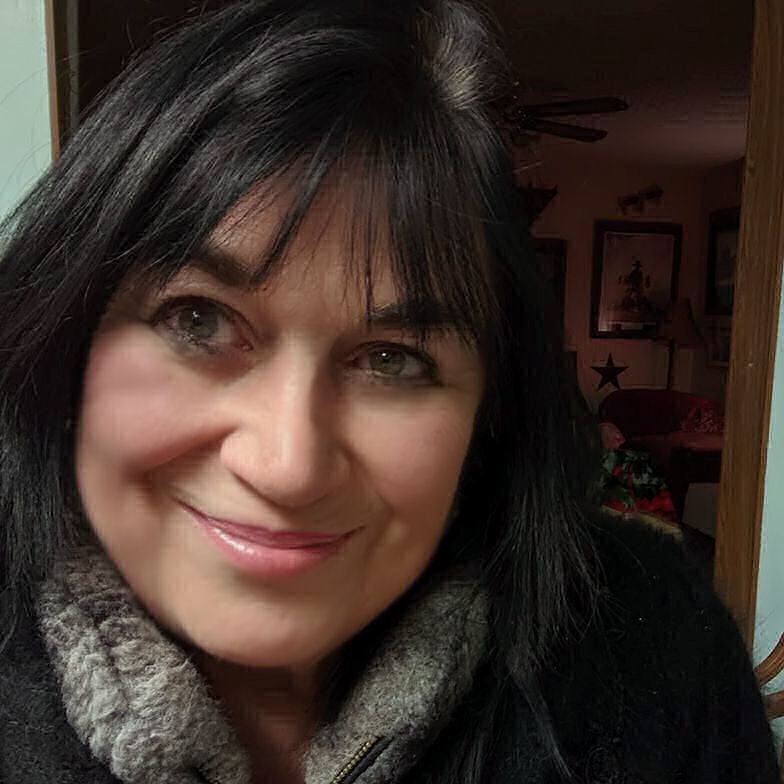
Instructor Bio: Deb Goodrich, the host of the TV show "Around Kansas," and the Garvey (Texas) Foundation Historian in Residence at the Fort Wallace Museum, chairs the Santa Fe Trail 200. She has appeared in many documentaries including "The Road to Valhalla," "Aftershock," and "American Experience" on Jesse James, and the series, "Gunslingers" on AHC. She wrote and produced the docudrama, "Thof's Dragon."
April 8-22, 2024, Zoom Facilitated Sessions
Expressionism
The course considers the influences, aims, context, and legacy of one of the most iconic modern art movements. While the course focuses on Germanic painting, other examples of expressionist "expression" (e.g., literature and film) and centers of production (e.g., France, Scandinavia, and Russia) will also be examined.
Instructor Bio: Eliah Bures holds a doctorate in history from UC Berkeley. He is a fellow at Berkeley's Center for Right-Wing Studies and the author of multiple essays and scholarly articles on far-right politics.
July 15-29, 2024
Finger Foods: Appetizers from Around the World
Appetizers were originally introduced by the Athenians in the early third century B.C. These finger foods, sometimes called hors d'oeuvres, antipasti, tapas, or starters, range from very simple to very complex. Put down the fork and knife and discover the history of the small, but delicious, world of finger foods.
Instructor Bio: Chef Larry Canepa is a certified culinary educator with over 40 years of food and beverage experience and 20 years of teaching cooking, food and culture, and STEAM-focused classes. He has taught culinary classes at Le Cordon Bleu, the International Culinary School at the Art Institute, corporate wellness events, libraries, community centers and other venues.
July 17-24, 2024
From "Titanic" to "Napoleon" - The Best Film Music from the '90s until Today
We'll explore what's behind the best film scores in today's evolving world. Anecdotes and superb audiovisuals will introduce us to the artistic and business aspects of the music of Thomas Newman ("American Beauty"), Hans Zimmer ("Interstellar"), Rachel Portman ("Emma"), Justin Hurwitz ("La La Land") and more.
Instructor Bio: Emanuel Abramovits has been a concert promoter since 2000, directly involved in many concerts by international artists, like Itzhak Perlman, Sarah Brightman, ASIA, Kenny G, and many more. He served as the cultural director at UNION ISRAELITA DE CARACAS from 2008 to 2019, releasing books, organizing film cycles, concerts, and art exhibits.
June 5-19, 2024, Zoom Facilitated Sessions
From Trails to Rails: the Historical Geography of Urbanization in Kansas
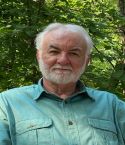
Instructor Bio: Tom Schmiedeler, Ph.D., is professor emeritus of geography at Washburn University.
April 10-24, 2024, Northland Innovation Center In-Person
From Trails to Rails: the Historical Geography of Urbanization in Kansas - Clay County Residents
Instructor Bio: Tom Schmiedeler, Ph.D., is professor emeritus of geography at Washburn University.
April 10-24, 2024, Northland Innovation Center In-Person
German Settlements and Culture in Kansas
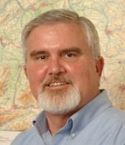
German is the most prevalent language after English and Spanish spoken at home in 77 counties in Kansas. Since 1854, thousands of German-speaking immigrants have sought better lives here, including Pennsylvania Dutch, Volga Germans, Mennonites, Austrians and Swiss. German churches dot the prairie, and some rural Kansans still speak a dialect of German.
Instructor Bio: William Keel, Ph.D., is a professor emeritus of German at KU, having taught the history and culture of German settlements in Kansas and Missouri.
July 16-30, 2024
Gift Certificate
July 1, 2023 to July 1, 2024
Going for Baroque: Getting a Handle on Handel and Traveling Back to Bach
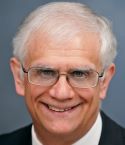
June 6-20, 2024, Osher Institute, St. Andrews Office Facility In Person
Great American Statesmen
We'll focus on the career and achievements of 18th-century statesmen Benjamin Franklin and John Jay Next, we'll examine the careers of two 19th-century giants, Henry Clay and Daniel Webster. Finally, we move to the early 20th century and explore two American statesmen who occupied opposite sides of the political spectrum, Theodore Roosevelt and Woodrow Wilson.
Instructor Bio: Robert Smith, Ph.D., is the director of the Fort Riley Museum. He has a doctorate in history from KSU and has published numerous articles on military history.
July 15-29, 2024
Health Care in America
This class looks at the emergence and transformation of the American health care system as it faced challenges such as shifts in the nature of disease, unequal access to medicine, and escalating medical costs. We'll examine medical and scientific discoveries of the 19th century and study the challenges to organized medicine that began in the 1960s as well as discuss contemporary health care issues.
Instructor Bio: Shirley Hill holds a doctorate degree in sociology and was a professor at the University of Kansas until she retired in 2017. She has written several books and has taught classes in medical sociology, social inequality, and families.
June 5-19, 2024, KU Edwards Campus, 163 Regnier Hall, In Person and Online
High Performing Governance: Bridging the Gap between Politics and Administration
While government structures are designed to separate the arenas of politics and administration, nothing substantial gets done without connecting what is politically acceptable and operationally sustainable. In contemporary environments bridging this gap is becoming increasingly challenging. Being aware that politics revolves around four conflicting democratic values and that politics and administration are different mindsets facilitates working the gap.
Instructor Bio: John Nalbandian, professor emeritus, served for eight years on the Lawrence city commission including two terms as mayor. He is former director of the nationally recognized public administration program at KU and has received numerous awards for his teaching, research, and service.
Friday, June 21, 2024, Osher Institute, St. Andrews Office Facility In Person
Historical Movies, How Accurate Are They?
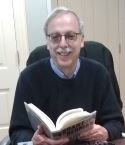
Instructor Bio: Robert Smith, Ph.D., is the director of the Fort Riley Museum. He has a doctorate in history from KSU and has published numerous articles on military history.
April 8-22, 2024, Osher Institute, St. Andrews Office Facility, In Person and Online
Hyphenated Rock
After Rhythm and Blues, Country, and Western music became Rock and Roll, subgenres started to appear: Rockabilly, Soul, Prog Rock, Motown, etc. In this course we will explore the origins, impact, and influence of each type, illustrated with many musical examples. Please join the conversation.
Instructor Bio: Steve Lopes, A.E., B.A., M.A., M. Ed., was an educator for 15 years prior to 30 years of advocating for teachers as a Kansas-NEA organizer. He enjoys researching rock 'n' roll history and sharing it with Osher participants.
June 25, 2024 to July 9, 2024, KU Edwards Campus, 163 Regnier Hall, In Person and Online
Illustrating the West
From the works of Albert Bierstadt and Thomas Moran to Charlie Russell and Frederic Remington, to the 19th-century illustrators like Theodore Davis, to the more modern artists like Phil Epp, Charlie Norton, Thom Ross, Wilson Hurley, and Harvey Pratt, we'll explore how the West has been portrayed and interpreted through art. Some of the artists will join our discussion.
Instructor Bio: Deb Goodrich, the host of the TV show "Around Kansas," and the Garvey (Texas) Foundation Historian in Residence at the Fort Wallace Museum, chairs the Santa Fe Trail 200. She has appeared in many documentaries including "The Road to Valhalla," "Aftershock," and "American Experience" on Jesse James, and the series, "Gunslingers" on AHC. She wrote and produced the docudrama, "Thof's Dragon."
July 17-31, 2024
Irish, German and Italian Immigrants in 19th- and 20th-century America
What caused massive numbers of Irish, Germans and Italians to come to our shores in the 19th and early 20th centuries? What was the reaction of the native-born to these strangers? To what extent did the newcomers try to stick together, blend in, advance or return to their old country? What contributions did these immigrants, and their offspring make to this country?
Instructor Bio: Carl Graves, Ph.D., holds a master's degree in U.S. history from KU and a doctorate from Harvard. He taught at the university and community college levels, and at Kansas City's Pembroke Hill School.
July 12-26, 2024
Is the American Dream Dead?
The American dream and hope of "leading a better, happier, richer life than your parents regardless of the circumstances of your birth" has energized Americans throughout our history. Today many Americans are challenged to pay their bills, find decent housing, and obtain health insurance. Today's high level of income inequality has led people to believe the American Dream is dead for many. The class will review what happened and how we might fix it.
Instructor Bio: Charles "Chick" Keller is a retired senior executive and retired professor. He worked 15 years each at Sprint, and Black and Veatch in strategic planning and strategic marketing rising to VP level both times. In 2000, he began a career as a professor in KU's engineering management program where he taught finance and strategic planning.
Thursday, July 18, 2024
Kansans and the Experience of Civil War, 1861-65
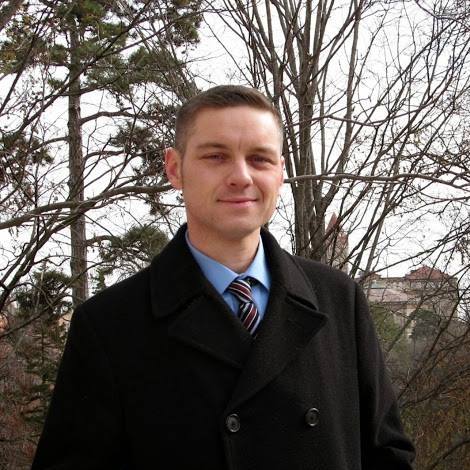
Instructor Bio: Will Haynes has a doctorate in history from the University of Kansas. He plans, manages, and promotes public programming at the Watkins Museum of History, the headquarters of the Douglas County Historical Society.
April 8-22, 2024, Dwayne Peaslee Technical Training Center - In Person
June 3-17, 2024, KU Edwards Campus, 163 Regnier Hall, In Person and Online
King Coal in Kansas
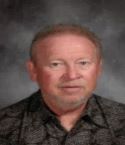
We'll explore the development of sub-surface coal mining in Crawford and Cherokee counties, making them the center of "King" Coal and resulting in milestones such as Pittsburg reaching 50,000 residents and UMWA membership exceeding 16,000, making it the world's zinc smelting capital. We'll also examine the emergence of area tycoons such as Mackie, Clemmons, and Spencer.
Instructor Bio: Ken Crockett was born into a second-generation family of coal miners. He was educated at Central Missouri State University (bachelor's degree) and Washburn University of Law (Juris Doctor). He is the author of two books related to Kansas mining (Missouri Coal Miner's Strike and Kenneth and Helen Spencer, Champions of Culture & Commerce in The Sunflower State).
July 17-31, 2024
Lady Clementine
Lady Clementine, wife of the renown Winston Churchill, was more than just the wife of a world leader. She was an influential political figure in her own right. She had insight, courage, and tenacity which proved crucial during pivotal moments in history. Clementine's story is one of a woman's ferocity and ambition through political unrest during two world wars.
Instructor Bio: Marlene Katz, a graduate from the University of Missouri, was an adjunct professor at UMKC, where she taught English and literature. Marlene has a 28-year teaching career and has been involved in storytelling for 20 years. "Women in History" is her specialty and Marlene has performed in a five-state area and has lectured at various groups, often in costume and speech of the character she is portraying.
Wednesday, June 26, 2024, KU Edwards Campus, 163 Regnier Hall, In Person and Online
Luis Humberto Salgado: A Quixote of Music - Speakers Series
Salgado (1903-1977) was an Ecuadorian art composer whose musical output combined national styles of music with European avant-garde music. He never left his home country and was basically a self-taught composer. This presentation will examine his eclectic musical style and how his work was perceived during his lifetime and today.
Instructor Bio: Ketty Wong is a member of the Ecuadorian National Academy of History and Associate Professor of Ethnomusicology at the University of Kansas. Her research interests include Latin America art, popular, and folk music, as well as issues of identity, nationalism, globalization, and the reception of Western social dances in China.
Thursday, July 11, 2024
Thursday, July 11, 2024, Osher Institute, St. Andrews Office Facility In Person
Making Tracks: American Railroads Then and Now
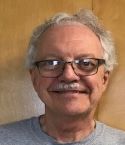
We'll explore the economic, political, and cultural impact of U.S. railroad corporations, passenger, and freight trains, as well as workers who built, ran and maintained them. Focusing on years from the Civil War to the present, the class emphasizes not only the Union Pacific-Central Pacific transcontinental route, but also lines in Kansas and Kansas City like the Santa Fe and the Rock Island.
Instructor Bio: Carl Graves, Ph.D., holds a master's degree in U.S. history from KU and a doctorate from Harvard. He taught at the university and community college levels, and at Kansas City's Pembroke Hill School.
June 4-18, 2024, Eudora Community Museum In Person
Middle Eastern & North-African Cinema (MENA)
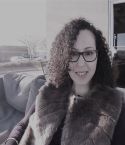
July 16-30, 2024
Monarch Conservation Starts in Kansas - Speakers Series
Kansas is home to Monarch Watch, an education, conservation, and research organization at the University of Kansas. Join us for a conversation with Monarch Watch's new director, Kristen Baum. She will provide an overview of Monarch Watch programs that support the monarch butterfly and share ways to get involved.
Instructor Bio: Kristen Baum is the director of Monarch Watch and senior scientist and professor at the University of Kansas. She has worked with pollinators for more than thirty years. Her research interests focus on the effects of land use and management practices on monarchs and other pollinators.
Thursday, June 27, 2024, Osher Institute, St. Andrews Office Facility In Person
More Voices of The Willows
We'll explore the early 20th century world of adoption in Kansas City and share adoptees' and birth mothers' heartwarming and sometimes heart wrenching stories. Ranging from 1908 until 1969, these voices express the common need to know "Who am I" longing for medical history, fear of hurting adoptive parents, and guilt for being forced to give up a baby. One voice is of a Willows baby who grew up to be the governor of Kansas.
Instructor Bio: Kellee Parr holds bachelor's degrees in agriculture and education plus a master's degree in adult and occupational education from Kansas State University. He has taught elementary school for many years in Topeka and now writes science curriculum for Nancy Larson Publishers.
July 17-31, 2024
Putting the Puzzle Together: An Exploration of "Oedipus the King" and "Turandot"
University of Kansas Visiting Assistant Professor of Classics Cecilia Cozzi and Lyric Opera of Kansas City Director of Learning Neal Long explore two iconic works (Sophocles' "Oedipus the King" and Puccini's "Turandot") and their common elements: the notion of a quest, the presence of riddles, and the importance of identity.
Instructor Bios: Cecilia Cozzi is a visiting assistant professor at the University of Kansas. She got her doctorate from the University of Cincinnati in 2023 with a thesis on psychoanalytical frameworks applied to inheritance on the tragic stage. Her primary research interest is Greek Tragedy and its reception.
Neal Long serves as director of learning at Lyric Opera of Kansas City where he oversees the company's programs of education and community engagement. Neal received his DMA from the University of Kansas in 2021 and enjoys a varied career as a singer, pianist, educator, and arts administrator.
Monday, June 10, 2024, Osher Institute, St. Andrews Office Facility In Person
Quick and Easy Content: Anyone Can Create Anything
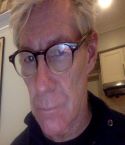
Instructor Bio: Stephen Knifton is an Emmy-winning TV news producer, creating and producing engaging and highly rated news programming. Steve also created work for museums, engineers, architects, designers, hospitality + tourism, and business development clients. He has taught (remotely) video storytelling and smartphone filmmaking at several colleges and has lived and worked in New York and Toronto, distance-teaching in Canada and the U.S.
April 29, 2024 to May 13, 2024, Zoom Facilitated Sessions
Slouching Toward Woodstock: The Books We Read in (and about) The Sixties
We'll look at books that explored: politics, drugs, expanding consciousness, feminism, the sexual revolution, and the Vietnam War and discuss how accurately they reflect that time 60 years later. Books discussed include: "The Making of the President 1960," "The Electric Kool-Aid Acid Test," "The Greening of America, Dispatches, Slouching Toward Bethlehem," "Helter Skelter, Fear and Loathing in Las Vegas" and "One Flew Over the Cuckoo's Nest."
Instructor Bio: Karl Menninger is retired from a legal career in federal and state government, mostly dealing with issues concerning persons with disabilities. He teaches courses on disabilities and the law and insanity defense at the University of Missouri - Kansas City School of Law.
July 15-29, 2024
Smartphone Filmmaking
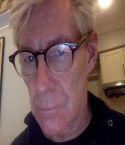
Instructor: Stephen Knifton is an Emmy-award winning TV news producer, credited for creating and producing engaging and highly rated news programming. Steve moved onto the digital content world and created work for museums, engineers, architects, designers, hospitality + tourism and business development clients. For the past few years, Steve has (remotely) taught video storytelling and smartphone filmmaking at a number of colleges. Steve lived and worked in both New York and Toronto and teaches in both Canada and the U.S.
July 16-30, 2024
Summers of Love: 1967-69, Monterey, Woodstock, Altamont (formerly Woodstock at 50)
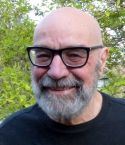
Instructor Bio: Steve Lopes, A.E., B.A., M.A., M. Ed., was an educator for 15 years prior to 30 years of advocating for teachers as a Kansas-NEA organizer. He enjoys researching rock 'n' roll history and sharing it with Osher participants.
April 9-23, 2024, Tallgrass Creek Retirement Community In Person
Summers of Love: 1967-69, Monterey, Woodstock, Altamont (formerly Woodstock at 50) - Tallgrass Residents
Instructor Bio: Steve Lopes, A.E., B.A., M.A., M. Ed., was an educator for 15 years prior to 30 years of advocating for teachers as a Kansas-NEA organizer. He enjoys researching rock 'n' roll history and sharing it with Osher participants.
April 9-23, 2024, Tallgrass Creek Retirement Community In Person
Synopsis of Supreme Court and Electoral College
We'll explore controversial elections between 1800 and 2020 discuss how the Electoral College works differently from the popular vote. We'll examine the Supreme Court's intervention in 1876 and the election outcome of the 2000 Bush v. Gore decision. Come join us as the information on the Court and College may impact the 2024 election.
Instructor Bio: Russ Hutchins teaches U.S. history, Western civilization, economics, business, philosophy, and business management at Friends University. He is a retired public-school administrator and educator.
June 26, 2024 to July 10, 2024, Zoom Facilitated Sessions
The 1930s, Depression, and Change
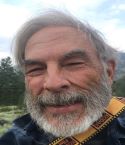
Instructor Bio: James Showalterhas seven years of experience with historic preservation and 31 years of teaching history at the university level. One of several areas of expertise he has developed is the history of religion worldwide, and particularly the history of religion in the area that is now the United States.
April 11-25, 2024, Zoom Facilitated Sessions
The American Revolution
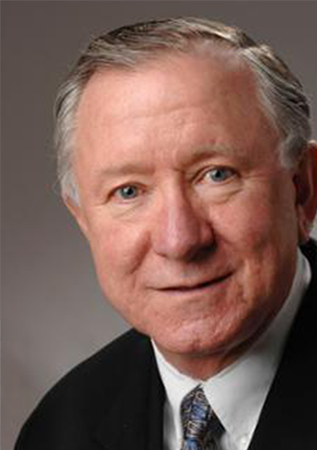
Instructor Bio: Vincent Clark holds a doctorate in modern European history. His graduate work included a Fulbright Graduate Fellowship at Germany's University of Heidelberg. He was history professor and chair of the history department at Johnson County Community College and has published articles and books in his field.
April 11-25, 2024, Roeland Park Community Center In Person
The Beatles Studio Years
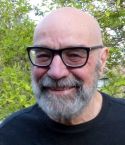
Instructor Bio: Steve Lopes, A.E., B.A., M.A., M. Ed., was an educator for 15 years prior to 30 years of advocating for teachers as a Kansas-NEA organizer. He enjoys researching rock 'n' roll history and sharing it with Osher participants.
July 18, 2024 to August 1, 2024
The Bill of Rights
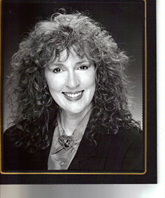
Instructor Bio: Shari Tarbet has been an educator for over 30 years, she holds an MA/ PhD in Mythological Studies and Depth Psychology from Pacifica Graduate Institute, and a BSE English/History Education, and BSJ Broadcast Journalism from Kansas University. Her writings and lectures cover a wide variety of topics on myth, dreamwork, the Bill of Rights, and the Sacred Feminine.
April 10-24, 2024, Zoom Facilitated Sessions
The Broadway Musicals of Lerner and Loewe
Alan Jay Lerner and Frederick Loewe formed one of the more distinctive writing teams working on Broadway from the 1940s to the 1960s. Their four most important shows included "Brigadoon," "Paint Your Wagon," "My Fair Lady" and "Camelot." This will be a look at the creation of these four shows and how the songs help tell the stories.
Instructor Bio: Paul Laird is professor of musicology at the University of Kansas, where one of his teaching specialties is music of the United States. He has published widely on such topics as Leonard Bernstein and American musical theater and won the 2021 KU Chancellor's Club Career Teaching Award. Laird has taught many Osher classes since the program's inception at KU.
June 11-25, 2024, Brewster Place
The Generals' Wives: How the Military Shaped the Role of First Lady
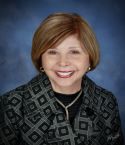
Instructor Bio: Diana Carlin, Ph.D., is Professor Emerita of Communication at Saint Louis University and a retired professor of Communication Studies at KU. She has co-authored a book on gender and politics and taught courses on women as political leaders, the rhetoric of women's rights and communication and gender.
June 3-17, 2024, Senior Resource Center for Douglas County In-Person
The JFK Assassination: 60 Years Later
This course will examine the political and social climate of the early 1960's and the circumstances involved in the assassination of President John F. Kennedy on November 22, 1963. This course will discuss the major theories as to who was likely behind the assassination. Numerous photographs which were not available to the public in 1963 will be utilized during the course. The course will conclude with an in-depth examination of an eyewitness, who was ignored by the federal government, who observed a man shoot at the President from behind a picket fence.
Instructor Bio: Brian Edwards has been researching the Kennedy assassination for five decades. During that time, he has personally interviewed hundreds of individuals connected with the case. He has given numerous presentations on the assassination throughout the United States. He is co-author of three books on the assassination; Beyond the Fence Line: The Eyewitness Account of Ed Hoffman and the Murder of President John Kennedy (2008); Blueprint for Murder (2020) and Admitted Assassin (2024). In 2019, he collaborated with and appeared in Oliver Stone's 4-hour documentary on the assassination, JFK Revisited: Through the Looking Glass.
June 25, 2024 to July 9, 2024, Osher Institute, St. Andrews Office Facility In Person
The King of Swing
Experience the musical magic of jazz clarinetist and swing bandleader Benny Goodman. In the 1930s Goodman led the popular dance band in America. His tenure culminated with a landmark performance in Carnegie Hall that elevated jazz to an art form. Discover why Goodman's musicianship was celebrated with accolades that included national lifetime achievement awards and his star on the Hollywood Walk of Fame.
Instructor Bio: Jean Hein recently moved to Kansas from South Carolina, where she was director and recorder performer with Columbia Baroque as well as a clarinetist. She currently teaches online recorder classes for seniors. Hein has served on the Board of Early Music America. She holds music degrees from Oberlin Conservatory and Northwestern University.
Thursday, June 20, 2024, Osher Institute, St. Andrews Office Facility In Person
The Life and Wars of Robert E. Lee
Instructor Bio: Ethan S. Rafuse has many published works include Robert E. Lee and the Fall of the Confederacy, 1863-1865. He received his doctorate at the University of Missouri-Kansas City and teaches military history at the U.S. Army Command and General Staff College at Fort Leavenworth.
June 26, 2024 to July 10, 2024, KU Leavenworth Campus, TownPlace Suites
The Sacred Feminine and Odysseus
We are most familiar with the Odyssey as a classic hero's journey. Though this epic has many layers to it, the purpose and presence of the sacred feminine is one layer that has been overlooked. This course traces the role of the sacred feminine in helping Odysseus return home through each female character, revealing the true character and purpose of each.
Instructor Bio: Shari Tarbet has been an educator for over 30 years, she holds a master's and doctorate in Mythological Studies and Depth Psychology from Pacifica Graduate Institute, and a bachelor's in English/History Education, and BSJ Broadcast Journalism from University of Kansas. Her writings and lectures cover a wide variety of topics on myth, dreamwork, the Bill of Rights, and the sacred feminine.
July 18, 2024 to August 1, 2024
The Spencers of Kansas: Champions of Culture and Commerce
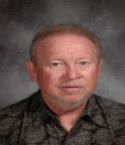
Instructor Bio: Ken Crockett was born into a second-generation family of coal miners. He was educated at Central Missouri State University (BA degree) and Washburn University of Law (Juris Doctor). He is the author of two books relative to Kansas mining (Missouri Coal Miners Strike and Kenneth and Helen Spencer, Champions of Culture & Commerce In The Sunflower State).
April 10-24, 2024, Claridge Court In Person
The Spencers of Kansas: Champions of Culture and Commerce - Claridge Court Residents
Instructor Bio: Ken Crockett was born into a second-generation family of coal miners. He was educated at Central Missouri State University (BA degree) and Washburn University of Law (Juris Doctor). He is the author of two books relative to Kansas mining (Missouri Coal Miners Strike and Kenneth and Helen Spencer, Champions of Culture & Commerce In The Sunflower State).
April 10-24, 2024, Claridge Court In Person
The Young Generals of the American Civil War
We'll focus on the generation of young leaders who served. We'll examine the military exploits of Western Theater generals William T. Sherman, Benjamin Grierson, Judson Kilpatrick, and John Schofield. Then we turn to the Eastern Theater to study Union generals Winfield Hancock, John Gibbon, George McClellan, Alfred Pleasonton, and Joshua Chamberlain. Finally, we learn about George Custer, Philip Sheridan, and Darius Couch.
Instructor Bio: Robert Smith, Ph.D., is the director of the Fort Riley Museum. He has a doctorate in history from KSU and has published numerous articles on military history.
July 16-30, 2024
Thomas Edison: An American Genius
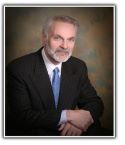
Instructor Bio: Paul Post, a native Kansan, received a B.A. in history from KSU and a law degree from the KU Law School in 1974. Now retired from the practice of law, he is a member of the Shawnee County Historical Society and an amateur beekeeper. He has authored essays on the history of SBA Hill/ former Menninger Campus in Topeka; Topeka's Bates Family; The Fred Harvey Company; and on Duke Ellington.
June 25-27, 2024, Aldersgate Village In Person
June 27, 2024 to July 18, 2024, Northland Innovation Center In-Person
Travel to Hawaii
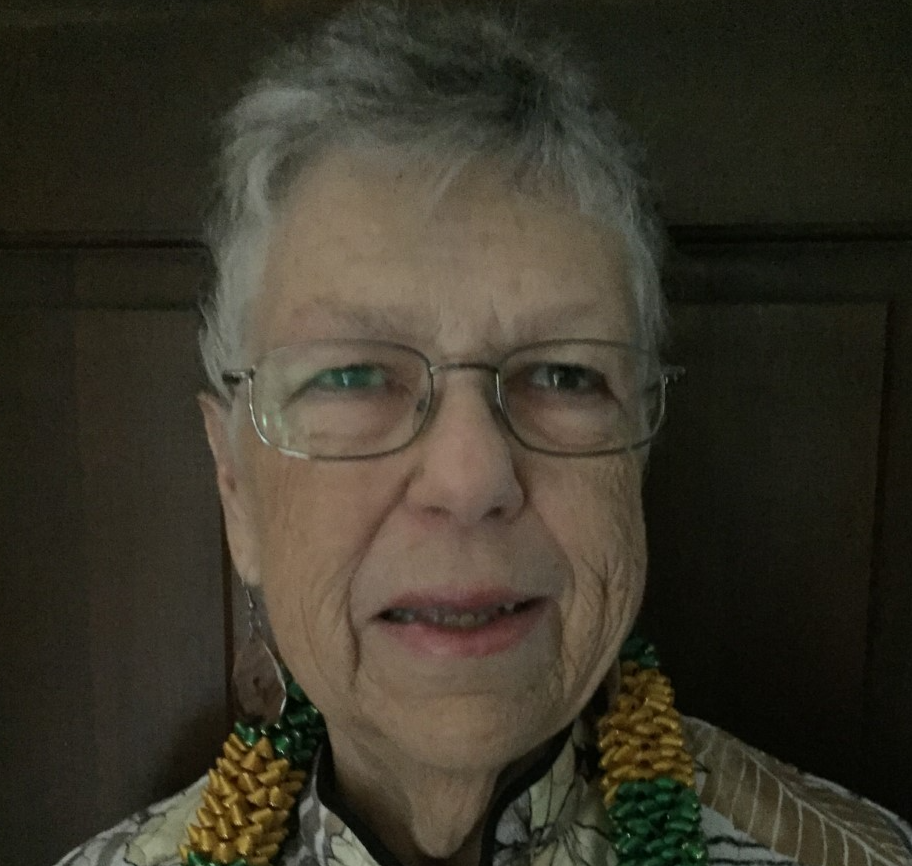
June 25, 2024 to July 9, 2024, KU Edwards Campus, 163 Regnier Hall, In Person and Online
United States Constitutional Amendments: A Different Way of Studying United States History
Join us in studying the background of the Constitutional Amendment process and how these modifications to the U.S Constitution reflect the times in which they were ratified. An example will be given from the U.S. Foundation Era (Bill of Rights). Other examples are from the U.S. Reconstruction, Progressive and Modern periods.
Instructor Bio: Anita Tebbe is a retired professor of the legal studies department at Johnson County Community College. She earned an undergraduate degree in history, a graduate degree in education and a juris doctor degree in law. Anita is a Kansas licensed attorney and has more than 40 years at the high school and college levels.
June 6-20, 2024, Osher Institute, St. Andrews Office Facility In Person
United States Vice President: Insignificant Position or Second Most Powerful Office?
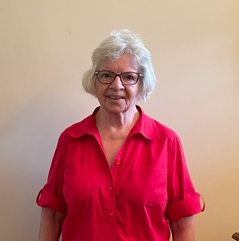
Instructor Bio: Anita Tebbe is a retired professor of the Legal Studies Department at Johnson County Community College. She earned an undergraduate degree in history, a graduate degree in education and a juris doctor degree in law. Anita is a Kansas licensed attorney and has more than 40 years at the high school and college levels.
April 9-23, 2024, Brewster Place Event Center In-Person
United States Vice President: Insignificant Position or Second Most Powerful Office? - Brewster Place Residents
Instructor Bio: Anita Tebbe is a retired professor of the Legal Studies Department at Johnson County Community College. She earned an undergraduate degree in history, a graduate degree in education and a juris doctor degree in law. Anita is a Kansas licensed attorney and has more than 40 years at the high school and college levels.
April 9-23, 2024, Brewster Place Event Center In-Person
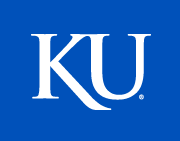
 Cart (0)
Cart (0)

